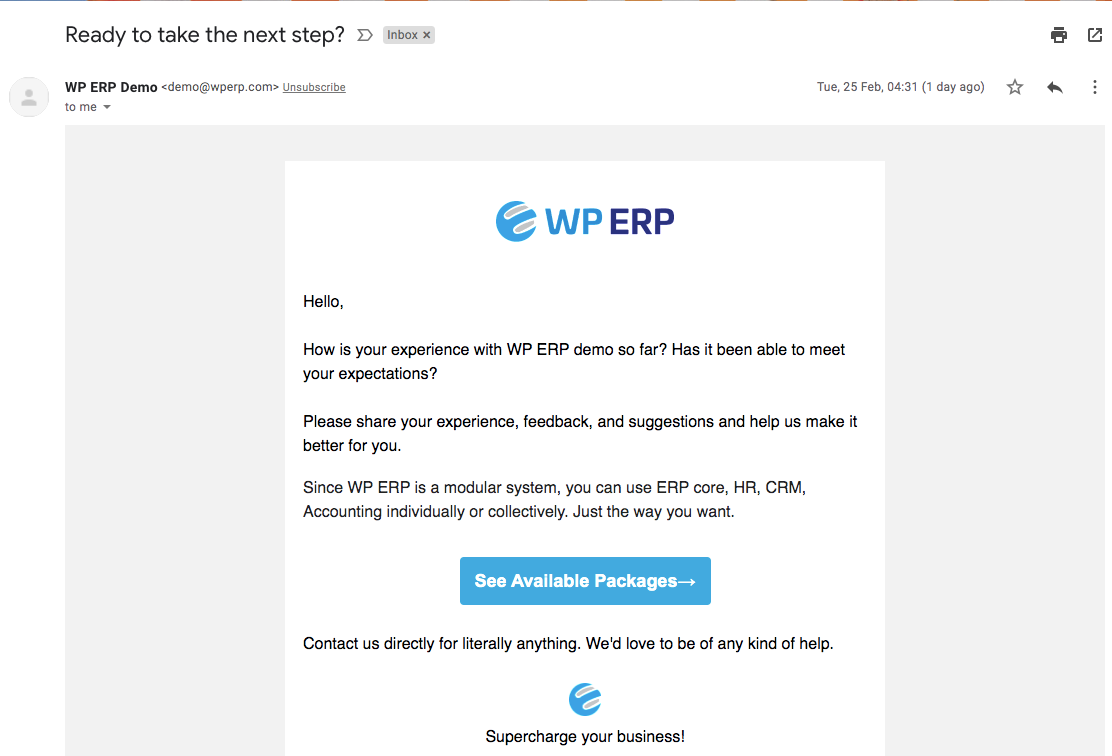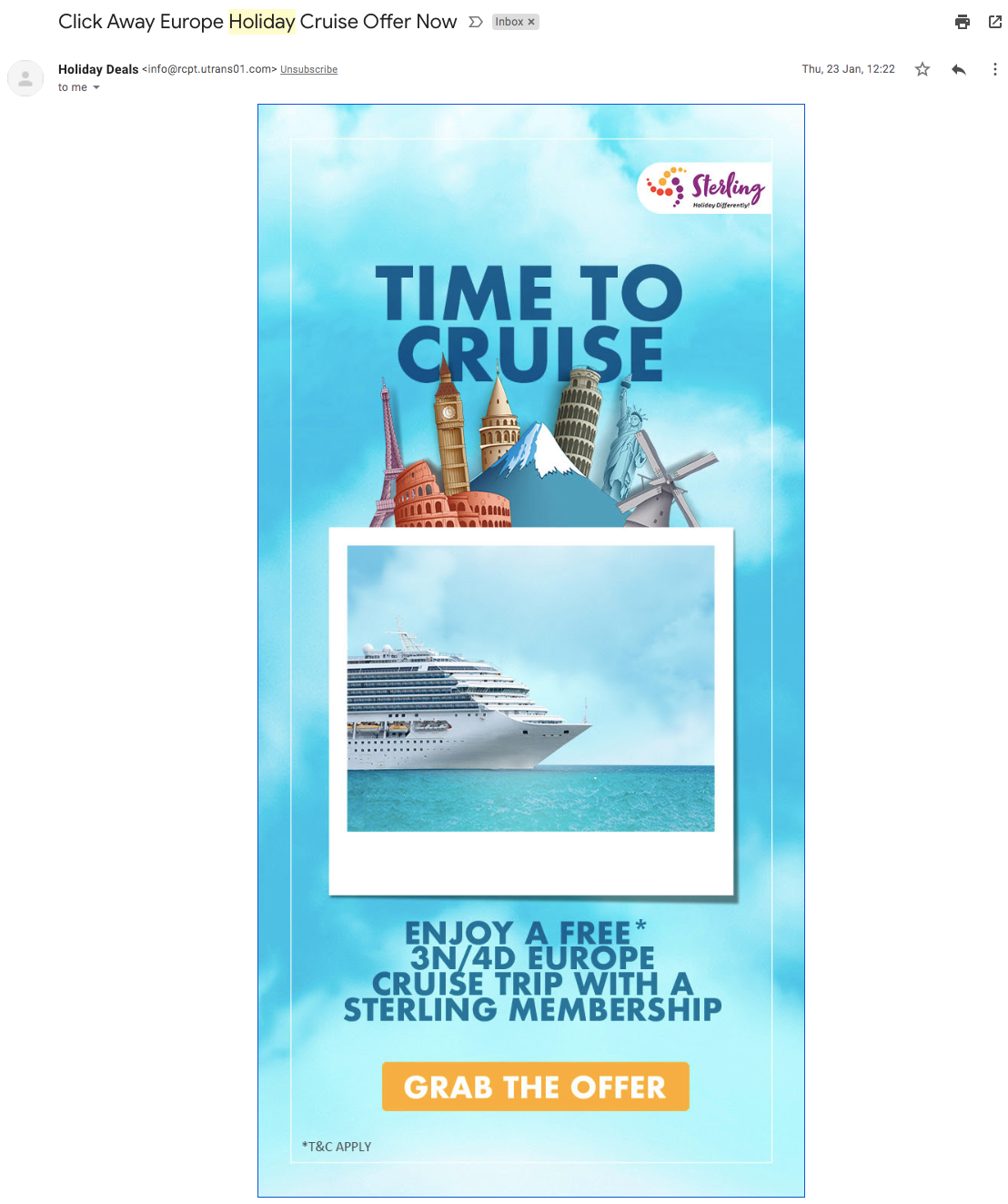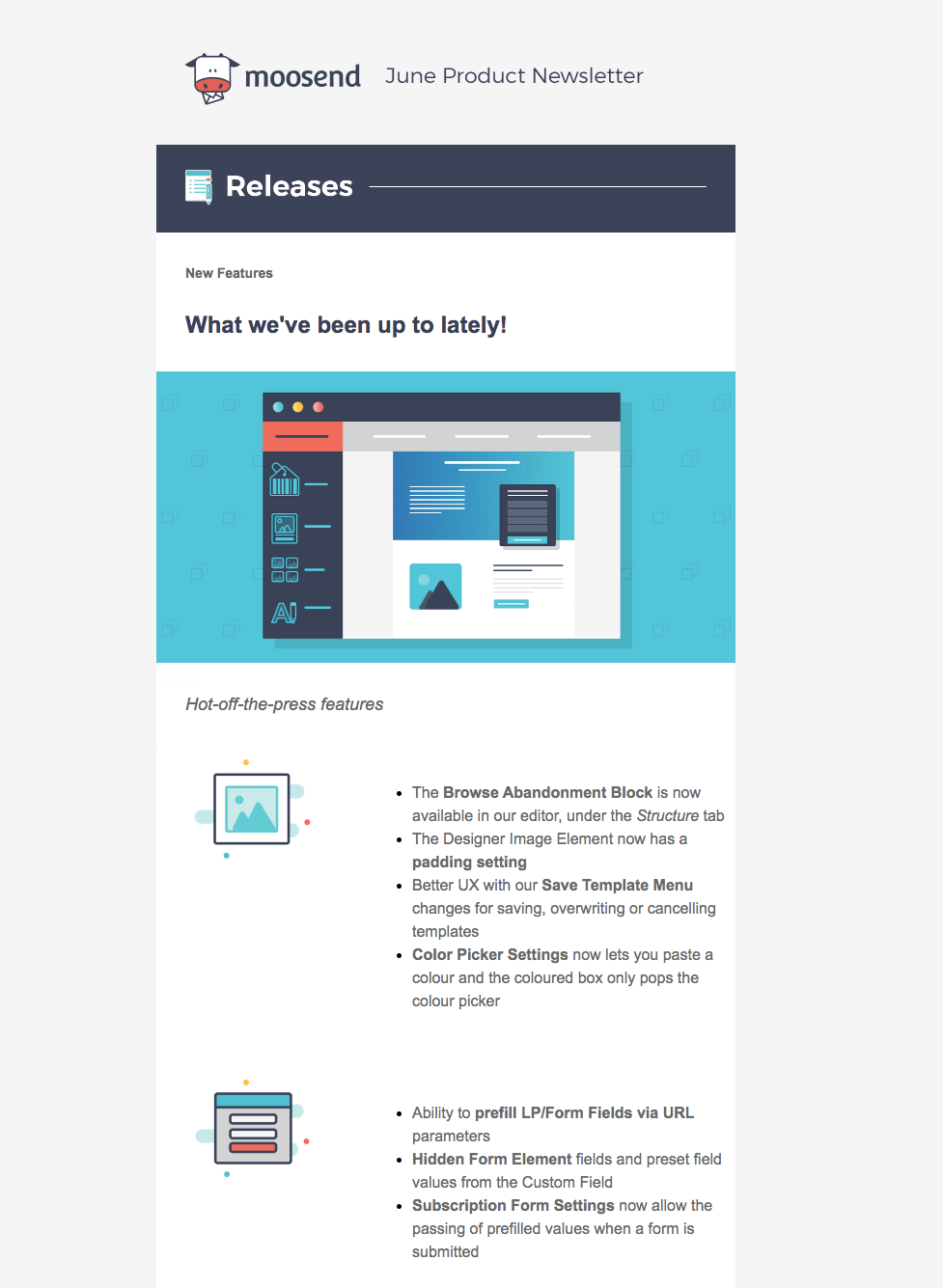Email Marketing
7 Different Types of Marketing Email You Should Be Sending

Did you know-
- 6 billion emails were sent and received each day
- Average expected ROI is $42 for every $1 you spend on email marketing
- 81% of small businesses rely on email as their primary customer acquisition channel and 80% for retention
As you are reading this article, I can assume that you’ve been collecting email addresses like a boss by using list Building and email marketing tools like MailChimp, Aweber, etc.
Being a marketer, you have learned that email marketing is one of the best marketing channels to sell online. And you have grown your email list. But after making a huge number of email lists, what is the next step?
In this article, I have shared my favorite 7 types of emails that I send to my subscribers. However, before we begin with the different emails, let us first look at why you need so many types.
Why You Need Different Types of Emails
Having a huge number of subscribers, it does not make sense unless and until you send emails. But most of the time, we make mistakes by sending inappropriate email marketing campaigns.
Avoid Inconsistency:
If you are sending emails too frequently or infrequently, people get surprised unpleasantly. You have to send emails in a consistent manner by offering value and engaging your contacts. The more value you can add to the life of your customers, the more they’ll look forward to receiving your emails.
Not Targeted and Personalized Email:
If you are sending the same email to everyone that will not convert. Because of all contact not the same. You have to divide your list or contact depending on their interest, age, sex, etc. If you fail to send targeted and personalized mail to your subscribers, they will not hesitate to unsubscribe. And you can lose them by before converting into customers.
Stop sending Identical Email:
If you think that people are always looking for offer, then you are wrong. Sending a promotional email, again and again, doesn’t add values to the user. You have to add values in their mails by sending different types of mail like Informational Emails, Promotional Email, New Blog Updates, tec. If you regularly send same types of emails, you’ll either lose your subscribers or you’ll never sell anything to them.
Are you willing to send different types of mails? Your subscribers will be happy to stay with you as a subscriber, and you’ll get the benefit from it by converting them into customers.
Without any further ado, let’s get started.
1. The Welcome Email
As you are reading the article, you can see, I have put “The Welcome Email” at the beginning of the list. Whenever a new user opt-in to your email list, the first email you should be sending “the welcome email”, for subscribing or creating an account to your business.
It’s like building a relationship with new subscribers and to ensure them that you are very thankful to them.
However, people are very choosy when it comes to which emails they would like to open to their email. They don’t like to get useless or unrelated emails and sometimes, people get surprised by unpleasant emails from you. And they go through the unsubscribe option.
To avoid this, you can let them know to expect a monthly or weekly newsletter with information about your products, services, special offers, updates, etc. in their inbox. Tell them more about you and your business and begin to build rapport with them an option to take action.
Take an example of perfect Welcome Email from Vistaprint if you are a services provider:
Here, they are letting know about their products and making sure customer satisfaction is present in the Welcome Email. If you are a blogger, then have a look on this screenshot:
2. Lead Nurturing Emails
For a long time, we have been using emails to promote our business and it is one of the most essential tools for nurturing customers. According to a study conducted by a leading digital marketing agency, companies who have invested in lead nurturing campaigns generate 55% more sales-ready leads at a 33% lower cost.
Depending on the interests of the customers, you may need to enlist them into the Lead Nurture Campaigns. Lead nurturing emails are a series of emails that contain useful, educational, informational, and targeted content.
As the name suggests, lead nurturing emails are used to nurture leads through the marketing funnel into a position of sales readiness. Let’s have a look at an example:
When I created a demo account on WP ERP Care, I became a part of the company’s lead nurturing campaign, they might have enrolled me in their lead nurturing campaign. I started receiving emails as I was interested in their product.
3. Cart Abandonment Emails
Cart abandonment emails are emails that are sent automatically to your customers who come to your store and adds an item to the cart, but do not buy the items. There are some reasons for abandonment during checkout. Check them out through the below graph.
According to SalesCycle, approximately 75.6% of carts were abandoned in 2018. That’s a huge number. Right?
But fortunately, there are a lot of tools and ways that give you the ability to recover sales. The only thing, you need to remind your customers. And that’s where cart abandonment emails come into play.
Now, what will you do?
For this, you must have buyer’s email ids. Companies ask users for their email ids before they check out. This is standard practice and allows the platform to create an account for the user using the same email id.
Alternatively, you may have a bunch of subscribers and customers who purchased from you before. You can send one cart recovery email, or a series of cart recovery emails in order to win back the sale. Here is an example of a cart abandonment email.
4.Seasonal Emails
As the name implies, Seasonal Emails are emails that you should be sending occasionally on certain holidays or events to your consumers. If you are an eCommerce marketer, platform, or company, you must have an email marketing calendar for the Holiday season. Here are some Holiday lists:
- Christmas
- Black Friday & Cyber Monday
- Valentine’s Day
- Mother’s Day
- Father’s Day
Email Marketing Campaign is very important for retail business if you want to increase the ROI. According to research, eCommerce sales were expected to grow by 17% during the holiday season of 2018. Here is a perfect email of seasonal Email.
5. Content Announcement Emails
Since content announcement emails or blog newsletters are one of the best ways to get thousands of visits to your content, most probably you already know it. Whenever you have content, you should send them to your subscribers to educate and nurture them. Content should be in the form of blog posts, eBooks, Webinars, and so on.
Recommended reading: A Comprehensive Guide to Content Marketing
6. Product Update Email
Product update emails should be sent when there is some sort of changes in your business, products, or services. In the case of these emails, it is important to keep in mind that emails should be simple and straightforward. Why? Generally, customers don’t like to get these often, and they’re usually not as interested as something like a promotional email.
It is very important to keep your customers up-to-date with the latest functionalities and features of your brand, product, or services. Many brands choose to send weekly or monthly product digests for the same.
It is recommended to send a sort of roundup of new updates or products periodically to your contacts rather than sending multiple emails about each individual product update.
Each and every update you send to your customers should entail a clear headline, a concise description, and an image that displays the product or feature.
7.Promotional Emails
The science behind sending a promotional email is to convert the customers right away to take decisions such as buying a product, downloading eBooks, sign up to an event, and so on.
However, most of the time, people make mistakes because they think sending promotional emails is all about discounts or offers, whereas you should go beyond of it. The most valued factor, you should keep in mind is that you are not just sending promotional emails to the recipients but also making relationships with them cultivating relationships.
Make sure your email copy conveys positive and realistic thoughts about your company, and its product or services, even values. It should include the background history behind that service and not just the price.
At the same time, you need to take care of the frequency of emails: promotional emails can hurt the attention of users and consideration. Send emails periodically with clear call-to-actions for maximum outcome.
Conclusion
Email Marketing is one of the most profitable marketing techniques with the highest ROI if it’s done effectively. Hence, you should send the right emails to the right people at the right time.
Don’t send emails too frequently or too rarely. An email should be sent in a consistent fashion with various email types. Send personalized emails to your customers, subscribers, and prospects to get maximum clicks and conversion. Try to keep one CTA per email. In fact, WordStream reports that emails with a single CTA can boost clicks by 371%.
I hope you really enjoyed knowing all the different types of email marketing campaigns. Now I’d like to hear from you:
Which email marketing campaign are you going to send first?
Or which email marketing campaign you have not tried yet?
Feel free to let me know by commenting below right now.







